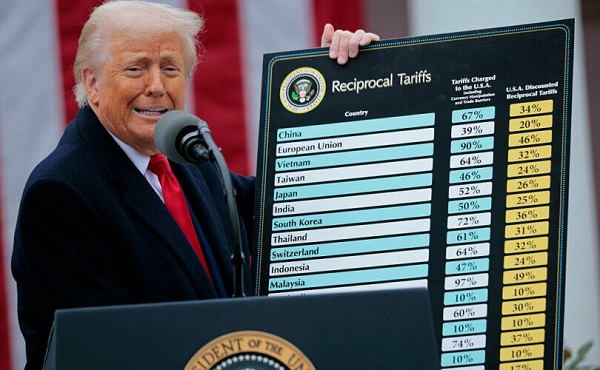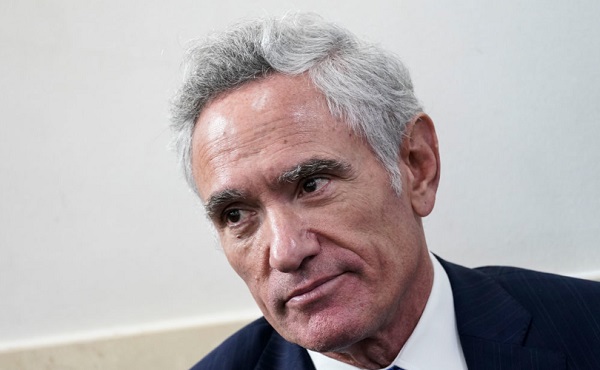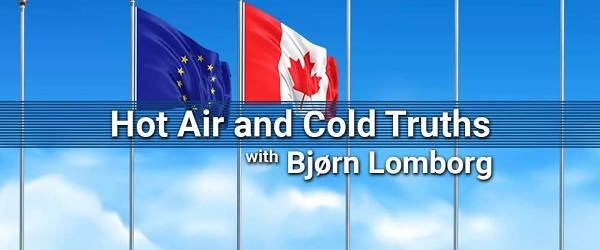Alberta
Update 5: Northwest Alberta wildfire (May 26 at 4:00 p.m.)

May 26, 2019
High temperatures, dry conditions and winds change the direction of wildfires. Northern Alberta communities are under heavy smoke warning for the next 24 hours. Evacuees can sign up for financial support today.
Current situation
- The Chuckegg Creek Wildfire is burning approximately three kilometres southwest of the Town of High Level in Mackenzie County.
- This out-of-control wildfire has grown to more than 105,000 hectares.
- Communities in the north of the province may experience heavy smoke from the fires in the next 24 hours.
- Resources on the ground include about 400 wildland firefighters, 194 structural fighters and staff on the ground, supported by 28 helicopters, eight air tankers and 46 pieces of heavy equipment.
- Evacuation centres have registered approximately 4,300 people as of May 26 at noon.
- A voluntary evacuation is in place for Paddle Prairie Metis Settlement and areas north of High Level.
- The province is providing one-time financial support to evacuees displaced by northwest wildfires.
- You may qualify for the evacuation payment if you were:
- living, working or vacationing in the affected area
- forced to leave due to an evacuation order
- paid for most of your costs to evacuate
- Albertans who qualify will receive $1,250 for each adult and $500 for each dependent child.
- Applications are open:
- Online – started Sunday, May 26 (Interac e-transfers may take 24 hours to go through)
- In person at evacuation reception centres – starting Monday, May 27
- If you require assistance registering, call 310-4455
- You can apply online for employment insurance using this code: 4812014812201900. The regular wait time is waived. To apply: www.canada.ca/en/services/benefits/ei.html
- Detailed information is available on emergency.alberta.ca, which is updated frequently.
Reception centres
- Reception centres are open at:
- Slave Lake Legacy Centre (400 6 Avenue)
- High Prairie Gordon Buchanan Centre (5409 49 Street)
- Grande Prairie Regional College (10726 106 Avenue)
- Peace River Misery Mountain Ski Hill (10408 89 Street)
- La Crete Heritage Centre (25411 Township Road 1060, south of La Crete)
- Fort Vermilion Community Cultural Complex (5001 44 Avenue)
- Hay River Dene Wellness Centre (In K’atl’ Odeeche First Nation, 17 kilometres east of Hay River)
Highway closures
- Highway 35 remains closed between five kilometres and 30 kilometres south of High Level. Highway 697 and the La Crete Ferry is identified as a detour. La Crete Ferry is operational with wait times of approximately one hour.
- Highway 58 from High Level to approximately 90 kilometres from the junction with Range Road 45A remains closed.
Insurance information
- Evacuated residents should retain all their receipts for food purchases, accommodation and other related expenses to provide to their insurer for possible reimbursement.
- Most home and tenant’s insurance policies provide reasonable coverage for living expenses during an evacuation. Contact your insurance company for details.
- Albertans who cannot remember or reach their insurance provider, can contact the Insurance Bureau of Canada at 1-844-227-5422 or by email at [email protected]. Information to understand your fire insurance coverage is online at www.ibc.ca/ab/disaster/alberta-wildfire.
Justice and legal matters
- High Level Court is closed. Call the Peace River Court at 780-624-6256 for inquiries on High Level Court matters scheduled for this week and next. All scheduled Fort Vermilion matters will be heard in Peace River. Call the Peace River Court at 780-624-6256 if you’re unable to register your name and phone number. Matters will be held by phone if necessary.
- In many cases, tickets can be paid online. For any other inquiries requiring direction from the court about Peace River and Fort Vermilion court matters, call the Peace River Court at 780-624-6256.
- If you have an appointment with a probation officer in an evacuated area, report to the community corrections office nearest you. If you do not know where the nearest one is, call 780-427-3109 (to call toll free, first dial 310-0000).
- If you are an intermittent server in an evacuated area, call the Peace River Correctional Centre at 780-624-5480 (to call toll free, first dial 310-0000) for direction.
Air quality
- Alberta Health Services has issued a special air quality statement.
- Special air quality advisories are in place for the High Level, Peace River, Grande Prairie and Wabasca regions.
- Alberta Wildfire recommends checking FireSmoke.ca to find out where the smoke is coming from.
Boil Water Advisory
- Boil Water Advisories remain in place for Meander River (Dene Tha’ First Nation), John D’Or Prairie, Fox Lake and North Tall Cree (Little Red River Cree Nation). Although power has been restored, the Boil Water Advisories will remain in place until water testing is complete.
Health
- Mental health support is available by calling Alberta’s 24-hour Mental Health Help Line at 1-877-303-2642.
- Alberta Health Services is providing supports to the receptions centres. These supports include addiction and mental health, indigenous health liaisons, nursing, emergency medical services, public health, home care and more.
Pets and livestock
- Animal Control are collecting household pets that have been left behind. Pets will be moved to a safe and secure location outside of the Town of High Level. If you have left your household pet behind, please contact 780-926-2201.
- Mackenzie County has stock trailers to assist with livestock. transport. Visit www.highlevel.ca for more information.
Donations and volunteers
- The towns of High Level and Slave Lake are not accepting material donations and do not require volunteers at this time.
- The Town of Slave Lake has set up an online form for offers http://www.slavelake.ca/FormCenter/Other-27/High-Level-Evacuation-Volunteer-Sign-Up-159.
- Check the Mackenzie County Facebook page for an up-to-date list of donations needed and drop-off locations.
Canada Post
- Canada Post has suspended mail delivery services in the communities of High Level, Paddle Prairie Metis Settlement, Meander River, Chateh and Keg River.
- Mail will be held at the Edmonton depot until mail service resumes.
- Check the Canada Post website for updates.
Income Support, Alberta Supports and AISH
- Residents receiving benefits from the Assured Income for the Severely Handicapped (AISH) or the Income Support program by cheque rather than electronic deposit, and who are affected by the wildfire in High Level, can visit their nearest Alberta Supports Centres Alberta Supports [www.alberta.ca/alberta-supports.aspx] to pick up their cheque.
- If you are in La Crete, you can pick up your cheque at the local reception centre. If you receive your benefits via direct deposit, your payment will be deposited as usual.
- For information on child intervention and child care, residents may contact 1-800-638-0715.
- If persons with developmental disabilities, their families or contracted service providers need human, financial, or in-kind assistance to connect with loved ones, find accommodations or provide assistance to individuals receiving PDD supports, please contact the nearest Alberta Supports Centre for assistance. You can find a list of Alberta Supports Centres online Alberta Supports www.alberta.ca/alberta-supports.aspx or you can call the Alberta Supports contact Centre at 1-800-232-7215 provincewide between 7:30 a.m. and 8 p.m., Monday to Friday.
- For additional information on social benefits, affected individuals can contact Alberta Supports at www.alberta.ca/alberta-supports.aspx or call 1-877-644-9992, Monday to Friday from 7:30 a.m. to 8 p.m.
Health card, driver’s licences, ID cards, birth certificate
- To get a replacement Health Care Insurance Card at no cost, you can contact 780-427-1432 or toll free at 310-0000 and then 780-427-1432 when prompted. Your Alberta Personal Health Card can be mailed to a temporary address.
- If driver’s licences, ID cards, and/or birth certificates were left behind during the evacuation, replacement cards and certificates can be ordered free of charge at a registry agent. A list of registry locations can be found at https://www.alberta.ca/registry-agents.aspx
Other information
- Residents driving through the area should carry enough fuel as there may be shortages.
Public information
- You can call 310-4455 for more information.
Aerial footage of the northwest wildfires
- B-roll of the Chuckegg Creek fire in northwest Alberta, taken Saturday, May 25, can be downloaded here.
Related information
Alberta
Alberta takes big step towards shorter wait times and higher quality health care

From the Fraser Institute
On Monday, the Smith government announced that beginning next year it will change the way it funds surgeries in Alberta. This is a big step towards unlocking the ability of Alberta’s health-care system to provide more, better and faster services for the same or possibly fewer dollars.
To understand the significance of this change, you must understand the consequences of the current (and outdated) approach.
Currently, the Alberta government pays a lump sum of money to hospitals each year. Consequently, hospitals perceive patients as a drain on their budgets. From the hospital’s perspective, there’s little financial incentive to serve more patients, operate more efficiently and provide superior quality services.
Consider what would happen if your local grocery store received a giant bag of money each year to feed people. The number of items would quickly decline to whatever was most convenient for the store to provide. (Have a favourite cereal? Too bad.) Store hours would become less convenient for customers, alongside a general decline in overall service. This type of grocery store, like an Alberta hospital, is actually financially better off (that is, it saves money) if you go elsewhere.
The Smith government plans to flip this entire system on its head, to the benefit of patients and taxpayers. Instead of handing out bags of money each year to providers, the new system—known as “activity-based funding”—will pay health-care providers for each patient they treat, based on the patient’s particular condition and important factors that may add complexity or cost to their care.
This turns patients from a drain on budgets into a source of additional revenue. The result, as has been demonstrated in other universal health-care systems worldwide, is more services delivered using existing health-care infrastructure, lower wait times, improved quality of care, improved access to medical technologies, and less waste.
In other words, Albertans will receive far better value from their health-care system, which is currently among the most expensive in the world. And relief can’t come soon enough—for example, last year in Alberta the median wait time for orthopedic surgeries including hip and knee replacements was 66.8 weeks.
The naysayers argue this approach will undermine the province’s universal system and hurt patients. But by allowing a spectrum of providers to compete for the delivery of quality care, Alberta will follow the lead of other more successful universal health-care systems in countries such as Australia, Germany, the Netherlands and Switzerland and create greater accountability for hospitals and other health-care providers. Taxpayers will get a much better picture of what they’re paying for and how much they pay.
Again, Alberta is not exploring an untested policy. Almost every other developed country with universal health care uses some form of “activity-based funding” for hospital and surgical care. And remember, we already spend more on health care than our counterparts in nearly all of these countries yet endure longer wait times and poorer access to services generally, in part because of how we pay for surgical care.
While the devil is always in the details, and while it’s still possible for the Alberta government to get this wrong, Monday’s announcement is a big step in the right direction. A funding model that puts patients first will get Albertans more of the high-quality health care they already pay for in a timelier fashion. And provide to other provinces an example of bold health-care reform.
Alberta
Alberta’s embrace of activity-based funding is great news for patients

 From the Montreal Economic Institute
From the Montreal Economic Institute
Alberta’s move to fund acute care services through activity-based funding follows best practices internationally, points out an MEI researcher following an announcement made by Premier Danielle Smith earlier today.
“For too long, the way hospitals were funded in Alberta incentivized treating fewer patients, contributing to our long wait times,” explains Krystle Wittevrongel, director of research at the MEI. “International experience has shown that, with the proper funding models in place, health systems become more efficient to the benefit of patients.”
Currently, Alberta’s hospitals are financed under a system called “global budgeting.” This involves allocating a pre-set amount of funding to pay for a specific number of services based on previous years’ budgets.
Under the government’s newly proposed funding system, hospitals receive a fixed payment for each treatment delivered.
An Economic Note published by the MEI last year showed that Quebec’s gradual adoption of activity-based funding led to higher productivity and lower costs in the province’s health system.
Notably, the province observed that the per-procedure cost of MRIs fell by four per cent as the number of procedures performed increased by 22 per cent.
In the radiology and oncology sector, it observed productivity increases of 26 per cent while procedure costs decreased by seven per cent.
“Being able to perform more surgeries, at lower costs, and within shorter timelines is exactly what Alberta’s patients need, and Premier Smith understands that,” continued Mrs. Wittevrongel. “Today’s announcement is a good first step, and we look forward to seeing a successful roll-out once appropriate funding levels per procedure are set.”
The governments expects to roll-out this new funding model for select procedures starting in 2026.
* * *
The MEI is an independent public policy think tank with offices in Montreal, Ottawa, and Calgary. Through its publications, media appearances, and advisory services to policymakers, the MEI stimulates public policy debate and reforms based on sound economics and entrepreneurship.
-

 2025 Federal Election2 days ago
2025 Federal Election2 days agoHarper Endorses Poilievre at Historic Edmonton Rally: “This Crisis Was Made in Canada”
-

 2025 Federal Election2 days ago
2025 Federal Election2 days agoMark Carney’s radical left-wing, globalist record proves he is Justin Trudeau 2.0
-

 2025 Federal Election2 days ago
2025 Federal Election2 days agoAn In-Depth Campaign Trail “Interview” With Pierre Poilievre
-

 Business2 days ago
Business2 days agoTrump’s tariff plan replaces free trade with balanced trade. Globalists hate that.
-

 2025 Federal Election23 hours ago
2025 Federal Election23 hours agoConservative Party urges investigation into Carney plan to spend $1 billion on heat pumps
-

 Also Interesting19 hours ago
Also Interesting19 hours agoMortgage Mayhem: How Rising Interest Rates Are Squeezing Alberta Homeowners
-

 Censorship Industrial Complex2 days ago
Censorship Industrial Complex2 days agoScott Atlas: COVID lockdowns, censorship have left a ‘permanent black mark on America’
-

 2025 Federal Election2 days ago
2025 Federal Election2 days agoDon’t double-down on net zero again





